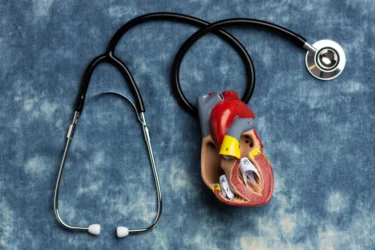Gudmar (Gymnema Sylvestre): Uses, Benefits, Side Effects, and More!
By Dr Siddharth Gupta +2 more

Get,

to manage your symptom
Get your,


4 Cr+ families
benefitted

OTP sent to 9988776655



You’ve successfully subscribed to receive
doctor-approved tips on
Whatsapp

Get ready to feel your best.

Hi There,
Download the PharmEasy App now!!


Register to Avail the Offer
Send OTPBy continuing, you agree with our Privacy Policy and Terms and Conditions

Hi There,
Sign up on PharmEasy now!!
Trusted by 4 crore+ families

OTP sent to 9988776655



You have unlocked 25% off on medicines




Code: NU25
By Dr Siddharth Gupta +2 more
Table of Contents
Gudmar, also called Gymnema Sylvestre, belongs to the family Asclepiadaceae. It is a herb widely distributed in Malaysia, India, Sri Lanka, Indonesia, Australia, Vietnam, Japan, the southwestern region of the People’s Republic of China, and tropical Africa1. It has deep roots in history and is known as one of the essential herbs used in the Ayurveda system of medicines for managing conditions ranging from malaria, and diabetes, to snakebites2. The term ‘Gymnema’ is derived from ‘Gurmar’, which is a Hindu term that means ‘destroyer of sugar’ and may be thought to neutralise the excess sugar present in the body1.
The vernacular names of gudmar are Gurmar in Hindi; Periploca of the woods in English; Kalikardori, Kavali in Marathi; Madhunashini, Meshashringi in Sanskrit; Mardashingi, Dhuleti in Gujrati; Sannagerasehambu in Kannada; Cherukurinja, Adigam in Tamil; Podapatri in Telugu1.

Gudmar has several nutrients like proteins and carbohydrates. Other chemicals present are tannin, phenol, flavonoid, quinones, triterpenoids, saponin, stigmasterol, alkaloids, resins, and glycosides3.
The beneficial properties of gudmar may include:
Gudmar may have potential uses for various ailments; however, more human studies are needed to support its true scope in humans.

A review3 report by Khan et al., 2019 suggested that gudmar may have a blood sugar-lowering activity. In an animal study, the gudmar plant was given to a diabetic animal, which resulted in lowered blood levels of triglycerides, cholesterol, and protein and reduced body weight. However, this information is insufficient because this study is done on the animal. Therefore, more human studies are required to support the potential uses of gudmar in managing blood sugar levels in the body.
I recently read in an article that along with being used for arthritis, diuretic, anaemia, osteoporosis, hypercholesterolemia, cardiopathy, asthma, constipation, microbial infections, indigestion and anti-inflammatory conditions, the herb demonstrates a wide variety of wonderful actions that make it an efficient natural remedy for diabetes5.
Dr. Siddharth Gupta, B.A.M.S, M.D (Ayu)

Several studies have reported that gudmar may have anti-cancer properties. The extract of gudmar was tested for anticancer activity in human (breast and lung) cancer cell lines. This study revealed that gudmar might have an anti-cancer effect. In another animal study, the antitumour activity of the plant was observed as it lowered the incidence of tumours and the number of tumours3. However, these studies are laboratory-based, and we require more human studies to see the potential of gudmar in managing cancer in the human body. Cancer is a major health condition that requires appropriate diagnosis and treatment. Therefore, before using gudmar, consult a doctor.

The gudmar extract was evaluated for anti-ulcer activity in an animal model. It lowered the total acidity, free acidity, and gastric (stomach) volume and enhanced the pH of the gastric juice. It was proposed that the anti-ulcer activity might be due to the presence of flavonoids, saponins, tannins, sterol, glycosides, resins, alkaloids, protein, carbohydrates, and triterpenoids3. This information is insufficient and requires more studies to support the potential uses of gudmar in managing ulcers. Therefore, people should take doctors’ advice and only have it if prescribed.

The leaf extract of gudmar was tested for anti-arthritic activity in an animal model. In this study2 conducted by Tiwari et al., 2014, it was found to be effective in managing arthritis. It was assumed that the anti-arthritic effect was due to the presence of triterpenoids, saponin glycosides, and steroids2. However, this study is insufficient as it is done on animals. We require more human trials to support using guitar for managing arthritis-related problems in humans.

The leaf of gudmar has been widely used in the Ayurvedic medicine system and is considered acrid, bitter, and may have anti-inflammatory activity. The anti-inflammatory property of gudmar might be due to the presence of tannin and saponins2. However, people should take the advice from an Ayurvedic doctor before using gudmar to reduce inflammation in the body. They will tell you the correct amount and dosage to have the herb.
From my experience, Gudmar may be used in respiratory illnesses such as asthma and bronchitis as well. Gudmar is known to have anti-inflammatory properties5.
Dr. Rajeev Singh, BAMS

The occurrence of heart disease is one of the causes of a higher incidence of death than other causes combined. Hyperlipidaemia (increased fat level in blood) is considered the major contributor to atherosclerosis (a condition in which there is a buildup of cholesterol and fats in arteries) and diseases like coronary artery disease. A decrease in serum cholesterol level might help lower the chances of coronary heart disease. The extract of gudmar was tested in an animal model (Tiwari et al., 2014)2, where it lowered the cholesterol, triglyceride, low-density lipoprotein (LDL), and very-low-density lipoprotein (VLDL) and increased the high-density lipoprotein (HDL) and was found might be beneficial for the heart health. However, this information is insufficient as there is no human subject involvement. Therefore, to support this claim, more human studies are required.

The leaf extract of gudmar was tested for wound-healing activity in an animal model. It showed enhancement in the wound healing activity, which might be due to the presence of flavonoids. This suggested that the extract of gudmar may have wound healing properties2. However, this study is an animal study and might show different results when tried on humans. Therefore, we require more clinically tested proof on humans. So, it is necessary to take a doctor’s advice before using gudmar in managing wounds.

The tooth infection due to different kinds of bacteria is called dental caries. Bacteria like S. aureus, S. mutans, S. mitis and fungus, including Candida albicans, attach to the surface of the tooth and demineralise the tooth. The extract of gudmar may have a beneficial effect against these microbes and therefore might help in dealing with dental caries. The extract of gudmar has also been marketed as toothpaste and powders2. However, this information requires more scientific proof to suggest its effect on dental health. Therefore, people should never use it to self-medicate themselves.
Gudmar may be used as:
Your Ayurvedic physician will prescribe the best form and dosage as per your medical requirements. Additionally, we recommend you do not change or discontinue your ongoing medications with any Ayurvedic or herbal preparations without taking the medical advice of an Ayurvedic doctor.
Also Read: Paneer Dodi: Uses, Benefits & Side Effects
Gudmar is primarily safe but might cause side effects if taken at higher doses.
The side effects include weakness, hypoglycaemia (lower than normal level of blood sugar), excessive sweating, shakiness, and muscular dystrophy (a disorder that causes progressive weakness and muscle loss)2.
However, if you notice such side effects after consuming gudmar, you should immediately rush to the doctor’s office and get the treatment. Your doctor will prescribe you a better treatment to overcome these side effects.
Also Read: Arjunarishta: Uses, Benefits & Side Effects
Also Read: Clove: Uses, Benefits, Side Effects & Dosage
Therefore, if you have any underlying conditions and are on any medication, you must consult your doctor before taking gudmar.
Also Read: Ashwagandha: Uses, Benefits & Side Effects
Traditionally, the leaves of gudmar were used for managing diabetes2. Also, in several animal models, gudmar helped manage diabetes3. Therefore, gudmar might be beneficial for diabetes; however, its studies in humans are not yet documented. Hence, before using gudmar for managing blood sugar levels, please consult a doctor.
Avoid taking gudmar during pregnancy as there is not sufficient data available on the safe usage of gudmar during pregnancy4.
Gudmar may be used in the form of powder, gudmar extract paste, crude plant, tablet, and capsule1. However, before using gudmar, you must consult an Ayurvedic doctor and ask for a prescription based on your health condition.
Gudmar is mostly safe to use. However, high doses of gudmar might cause weakness, hypoglycaemia, excessive sweating, shakiness, and muscular dystrophy2. Therefore, immediately contact your concerned doctors if you observe any side effects after taking gudmar.
Traditionally, the root juice of the gudmar plant was used to deal with snakebites2. However, it is advisable to seek immediate medical help in case of snakebite and not use gudmar to self-medicate on your own.
Gudmar may have been effective against microbes responsible for dental caries. Therefore, it may be beneficial for dental caries2. However, this information is insufficient and requires a doctor’s advice to use gudmar for managing dental caries in humans.
Gudmar might lower the blood sugar level, and taking gudmar and antidiabetic medicines might drop the blood sugar level too low. Therefore, avoid taking/consuming gudmar if you are taking antidiabetic medicines and if any complications are observed, seek medical help4.
There is no known interaction of gudmar with foods4.
Avoid taking gudmar if you are taking phenacetin, tolbutamide, and antidiabetic drugs. Gudmar might interact with these medicines4.
There is not sufficient information on the safe usage of gudmar while breastfeeding. Stay on the safer side, avoid gudmar or contact your doctor if you want to use gudmar while breastfeeding4.
1. Saneja A, Sharma C. Gymnema sylvestre (Gurmar): a review. Der Pharmacia lettre [Internet]. 2010;2(1):275–84. Available from: https://www.scholarsresearchlibrary.com/articles/gymnema-sylvestre-gurmar-a-review.pdf
2. Tiwari P, Mishra BN, Sangwan NS. Phytochemical and Pharmacological Properties of Gymnema sylvestre: An Important Medicinal Plant. Biomed Res Int [Internet]. 2014;2014:1–18. Available from: https://www.hindawi.com/journals/bmri/2014/830285/
3. Khan F, Sarker MMR, Ming LC, Mohamed IN, Zhao C, Sheikh BY, et al. Comprehensive review on phytochemicals, pharmacological and clinical potentials of gymnema sylvestre. Front Pharmacol. 2019;10(OCT):1–19. Available from: https://www.ncbi.nlm.nih.gov/pmc/articles/PMC6830388/
4. Medlineplus. Gymnema [Internet]. Vol. 2, MedlinePlus National Library of Medicine. 2021. Available from: https://medlineplus.gov/druginfo/natural/841.html
5. Tiwari P, Kumar B, Kaur M, Kaur G, Kaur H. Phytochemical and pharmacological properties of Gymnema sylvestre: A review. Adv Pharmacol Sci. 2014;2014:830285. PMCID: PMC3912882. Available from: https://pmc.ncbi.nlm.nih.gov/articles/PMC3912882/
Disclaimer: The information provided here is for educational/awareness purposes only and is not intended to be a substitute for medical treatment by a healthcare professional and should not be relied upon to diagnose or treat any medical condition. The reader should consult a registered medical practitioner to determine the appropriateness of the information and before consuming any medication. PharmEasy does not provide any guarantee or warranty (express or implied) regarding the accuracy, adequacy, completeness, legality, reliability or usefulness of the information; and disclaims any liability arising thereof.
Links and product recommendations in the information provided here are advertisements of third-party products available on the website. PharmEasy does not make any representation on the accuracy or suitability of such products/services. Advertisements do not influence the editorial decisions or content. The information in this blog is subject to change without notice. The authors and administrators reserve the right to modify, add, or remove content without notification. It is your responsibility to review this disclaimer regularly for any changes.
Comments

Leave your comment...
You may also like
Comments